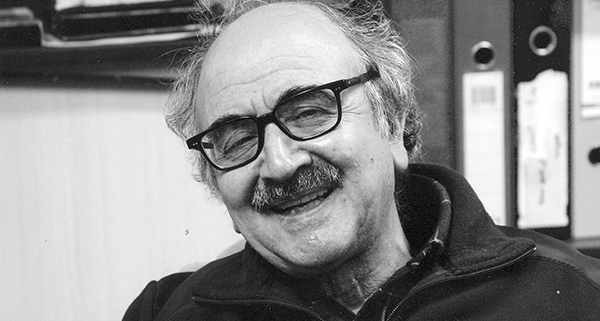
There are not many literary scholars in the history of Persian literature who are also great poets; neither are there many poets who made it as great literary scholars. Mohammad Reza Shafi’i Kadkani (b. October 12, 1939), renowned poet and literary scholar, is one of those rare exceptions. A native of Neyshabour, Khorasan province in northeastern Iran, Kadkani has written much in admiration of his hometown, yet the universal concerns and experiences conveyed through his words have made his poetry a refuge and a locus of serenity for his audience everywhere.
After spending 15 years from his childhood to adolescence, studying Arabic literature and Islamic jurisprudence, Kadkani left his native city to pursue his academic studies in Persian literature at Ferdowsi University in Mashhad. He later attended University of Tehran where he gained his PhD in literature. While studying in Mashhad and Tehran he took part in various poetic circles and became well known among the literary elite.
Although known for his modern poetry, Kadkani started with the classical form of ghazal, which consists of rhyming couplets and a refrain, with each line sharing the same meter. He published his first poetry collection, Zemzemeh-ha (whispers) in 1965. In his following poetry books Nocturnes (Shabkhani), and Through a Leaf’s Eyes (Az Zaban-e Barg) Kadkani departs from lyrical poetry and adopts the new form known as Nimaic poetry (Sher-e-now/modern poetry). In Kadkani’s writing with this new form come new social concerns as well, and with an elevated epic tone. His fourth collection, In the Garden Alleys of Nishapur (Az kouche-bagh-haye Nishabour) was published in 1971 and is considered by many to be the epitome of Shafi’i Kadkani’s mastery in style and poetic language. This collection became so popular that lines from it are now used regularly in everyday conversations. Echoing the voice he had reached in The Garden Alleys of Nishapour, Kadkani released three new poetry collections six years later: Like a Tree in a Rainy Night (Mesl-e Derakht dar Shab-e Baran), The Scent of Moulian Brook (Booy-e Jooy-e Moulian) and Of Being and Singing (Az Boudan-o Soroudan).
In 1988 his latest poetry collection, The Second Millennium of the Mountain Deer (Hezare-ye Dovvom-e Ahouy-e Kouhi), emerged. In this collection Kadkani took the voice and style he had perfected to a new level. The philosophical complexities of his poetry in The Second Millenium correspond to the poems’ formal strengths and linguistic intricacies.
After finishing his PhD, Kadkani was invited to remain in the University of Tehran as a professor, a position he still holds today at 75. As a literary critic and scholar, Shafi’i Kadkani has written on imagery and rhythm in Persian poetry, edited the poetry of classical Persian poets and translated works on Islamic mysticism.


Leave a Reply